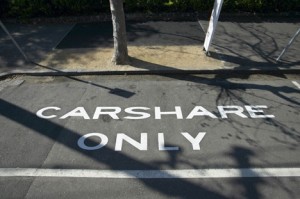Oregon Car-Sharing Regulations Passed in Congress
 Could car sharing, like home sharing, be a viable alternative to many of the services we use today? Many think that it could be. Not only would it provide car access to those who perhaps may not want to own one or need one at all times, but it could net car owners a little extra cash on the side when they don’t use their cars.
Could car sharing, like home sharing, be a viable alternative to many of the services we use today? Many think that it could be. Not only would it provide car access to those who perhaps may not want to own one or need one at all times, but it could net car owners a little extra cash on the side when they don’t use their cars.
This would be particularly valuable for those people who don’t use their cars to commute to work, perhaps because they are walking or biking distance from it. Many families have a second car in the garage that gets seldom-used, except on special occasions. So, what was barring these people from sharing their cars, anyways?
Auto insurance policies generally prohibit car owners from using their cars commercially. Car-sharing falls under this category. Policyholders could potentially receive non-renewal notices at the end of their policies, or even see their current policy canceled.
Their own policies hold them back from doing so. Signed into law Jun 21, 2011 was HB 3149, essentially allowing car owners to rent their cars without fear of repercussion from car insurance companies. It took effect January 1, 2012.
To learn more about Oregon legislation regarding car insurance laws and regulations, please also visit AIZ resources about OR.
So, How Does it Work?
Generally, cars are rented through a third party company which takes a commission fee from whatever your car earns. There are several out there, like RelayRides in California that already do this. Oregonlive.com says, “Logging onto San Francisco-based Getaround, members can choose from more than 2,000 personal vehicles in the Bay area. They run the gamut, from an old Honda Civic for $5 an hour ($30 per day) to an electric Tesla Roadster going for $50 an hour (with a two-hour minimum).”
Drivers can rent their cars for an entire day, or just for a predetermined amount of hours. It’s up to the owner and his or her driving needs. The good thing about this program is that it is so flexible.
Cars that are just sitting there can now be capitalized upon. Drivers make their car payments and pay for car insurance as well. If that car is just lying around doing nothing, it can really become a cash sink. While you can build equity by paying the car off, depreciation looms overhead, decreasing the fair market value of the investment.
Coverage Options
The car insurance policy generally won’t cover you, your car, or the person driving your car in the event of an accident if it is being used for commercial purposes. What are you to do?
Fortunately these third party companies often offer a form of coverage that is meant to bridge that gap. According to the New York Times, RelayRides provides a whopping $1 million in liability coverage for you, the car owner, if the person it was rented to kills or causes severe injury to another.
However, if the funds from this coverage aren’t enough to cover the costs, you could be personally liable for paying the remaining expenses. While the prospect of this is frightening, the New York Times says that the probability of such a catastrophic crash is low.
